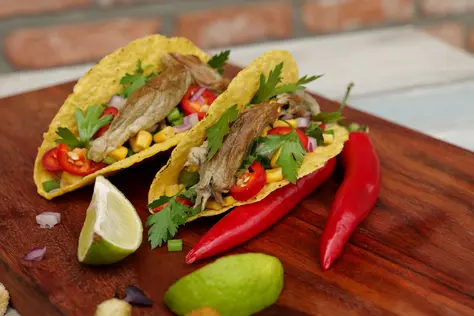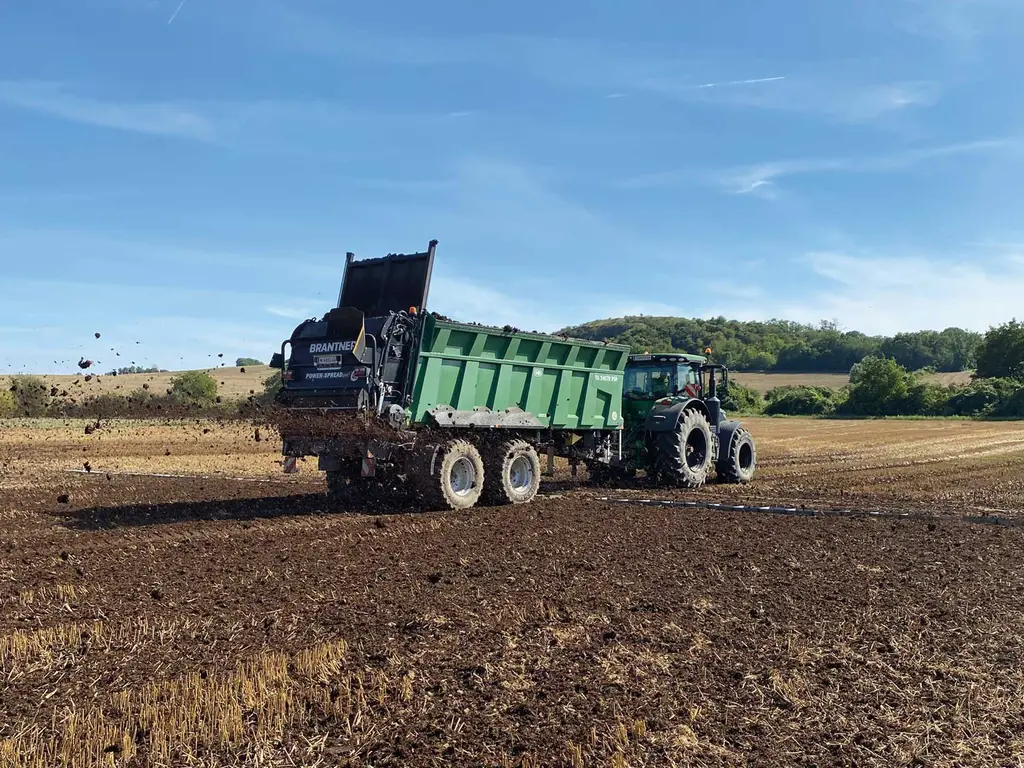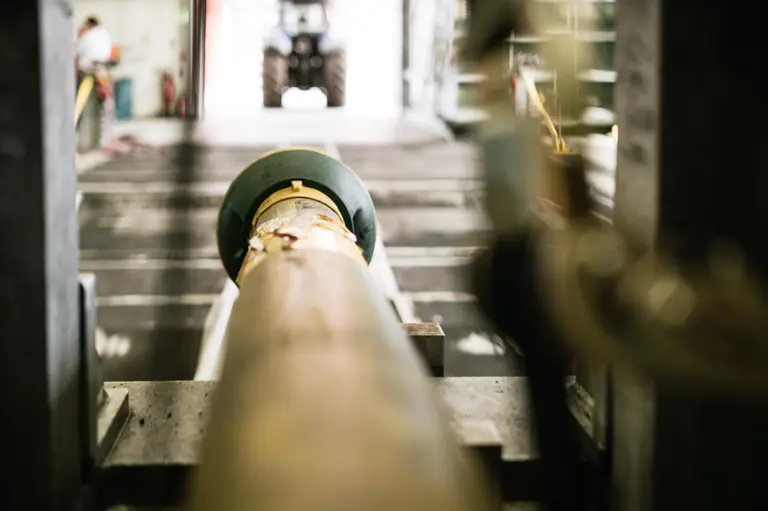Agriculture in Ukraine is facing enormous challenges as it has to cope with the consequences of the ongoing war. At the same time, the exciting question arises as to how Ukraine, as a heavyweight in international grain exports and with its large-scale agriculture, can be integrated into the agricultural policy and internal market of the international community in the event of possible EU accession.
When Dr Alex Lissitsa, President of the Ukrainian Agribusiness Club (UAC) and himself a farmer with a large farm in Ukraine, takes the floor at the impulse forum “Ukraine as an agricultural country between war and EU accession”, the Russian war against Ukraine has been going on for almost three years. Lissitsa began by expressing his moving thanks for the support his country has received from the German government since the war began - and appealed for this to hopefully continue in the future. The dairy farmer describes how he and his company wanted to make preparations for possible EU accession shortly before the start of the war - and how the first bombs fell on Kiev a few days after these considerations, farms were occupied or destroyed - and “the reality was suddenly completely different.”
Law on EU-compliant crop protection
Despite the ongoing war of aggression and the recent geopolitical upheavals, the Ukrainian government is continuing to work hard to fulfil the requirements for EU accession and “review thousands of documents and regulations”, according to the UAC President. Lissitsa emphasised that the Ministry of Agriculture in Kiev had recently passed several laws through parliament, including on the use of crop protection in accordance with EU standards. Large farms in the country are also grappling with EU-compliant sustainability standards and the associated ESG reporting obligations.
With regard to the fears of farmers from some EU member states, Lissitsa referred to “some narratives” that are constructed and often do not stand up to scrutiny based on figures, data and facts. Lissitsa said that some EU countries' fears of disruption caused by sugar imports from Ukraine did not reflect a realistic picture of the situation: most of the EU's sugar imports come from South America - Ukraine does not even supply a tenth of the volume that South American exporters deliver to Europe.
Figures, data and facts versus “fake news”
For his part, Dr Martin Schneider from the management of the consultancy firm IAK Agrar Consulting GmbH in Leipzig referred to controversial discussions with farmers in Germany about Ukraine's accession to the EU. He agreed with Lissitsa's assessment that emotionally driven narratives were often at work here, and in some cases even spoke of ‘fake news’ that had to be refuted by facts.
Farmers in Germany, for example, had followed the situation critically when Ukrainian grain could no longer be marketed by sea due to the war and increasingly flowed into the EU internal market, and had also observed the resistance to the situation among Polish farmers. Claims that local agricultural traders were only buying Ukrainian goods did not stand up to scrutiny, emphasised Schneider.
IAK Agrar Consulting is one of the implementing partners in the German-Ukrainian Agricultural Policy Dialogue project consortium of the German Federal Ministry of Agriculture (BMEL). The dialogue aims to promote exchange between the two countries in science, business and politics on an equal footing. IAK Executive Director Schneider pointed out that “the CAP system would have to change after Ukraine's accession to the EU”, but that this would be the case anyway due to the need to reform the support systems in the EU Common Agricultural Policy - especially with regard to area-based direct payments. Mr Schneider was convinced that Ukraine offered the EU the opportunity to “become a real powerhouse in the global agricultural market”.
Prof Dr Alfons Balmann, Director of the Leibniz Institute of Agricultural Development in Transition Economies (IAMO), categorised the reservations of EU agriculture with regard to additional imports from Ukraine due to the Russian war of aggression: The quantities of sunflower or rapeseed oil or even grain that had additionally flowed into the EU would have been exported to other parts of the world under different conditions and therefore did not fundamentally change the global market balance, the scientist stated.
Ukraine as an agricultural country
According to the Leibniz Institute of Agricultural Development in Transition Economies (IAMO), grain accounts for the largest export share of agricultural products in Ukraine at 40.8 %, followed by the animal or vegetable fats and oils product group at 22.4 %.
The war has changed Ukraine's export structures, with a shift towards more exports to the EU: while 29.4% of the country's exports went to Europe in 2020, the year before the war, the figure was 55.2% in 2022, the first year of the war. In 2023, this share rose to 56.8% before falling to 52% in 2024. Other destinations for Ukraine's agricultural exports are The Eurasian Economic Union as an association of post-Soviet states, Southeast Asia, the Middle East and Africa. Exports of wheat, maize and sunflowers (seeds, meal, oil) from Ukraine currently amount to just under 50 million tonnes per year and are therefore at the same level as in 2015/16. By comparison, Ukraine exported around 60 million tonnes of grain and oilseeds in 2018/19.
The farm structure in Ukraine comprises around 4 million household farms with an average of 1.5 hectares of agricultural land, around 63,000 family farms with an average of 75 hectares and 14,000 legal entities, including agricultural companies such as agroholdings. Legal entities account for almost half of agricultural production in Ukraine, according to data from official Ukrainian sources and international estimates.
Agroholdings such as Kernel or MHP are present in the public eye and, according to Prof Alfons Balmann (IAMO), generate far above-average yields and remain very productive despite the war.

Ukraine does not need direct payments
Ukrainian imports mainly go to processing locations such as Spain or the Netherlands and Germany - and the EU exports inputs such as pesticides or seeds to Ukraine, emphasised Balmann. The economy in the EU also benefits from this, which is unfortunately neglected in the sometimes controversial discussions in EU agriculture.
In Balmann's opinion, EU land subsidies are “the last thing Ukrainian agriculture wants” - if only to avoid disrupting the pricing process on the land market. Moreover, the very large and efficient agroholdings in particular could hardly justify receiving land subsidies.
EU economy can accompany investments
Balmann, however, sees great prospects for Ukrainian agriculture in deepening value creation in the agricultural and food industry. Alex Lissitsa also sees opportunities here, including for companies in the EU that could support corresponding investments in Ukraine. At the moment, around 50% of pigs in the country are still slaughtered on small family farms. After joining the EU, this type of slaughtering would no longer be permitted under EU regulations. Accordingly, Ukraine would have to invest in a professional slaughter infrastructure, emphasised Lissitsa.












